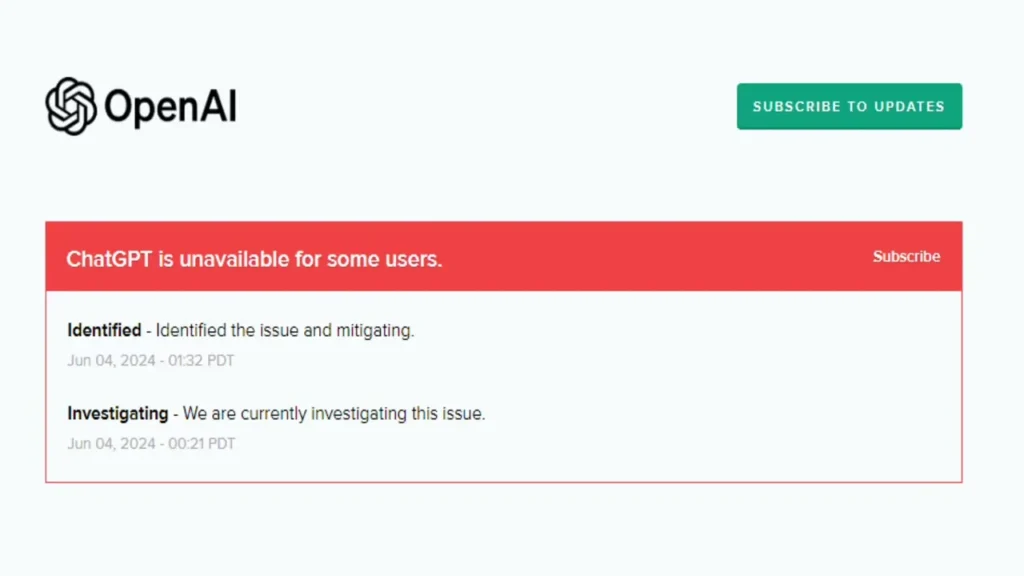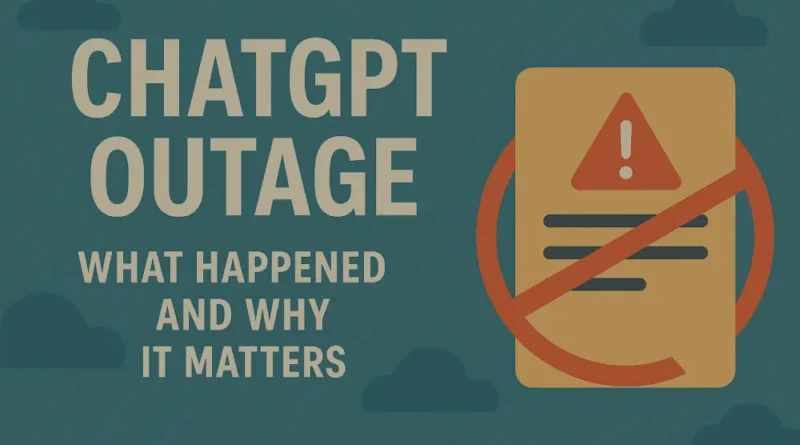ChatGPT Outage: What Happened and Why It Matters
On June 10, 2025, millions of users worldwide experienced major disruptions while trying to access ChatGPT, one of the most widely used AI chatbots developed by OpenAI. The outage affected users on both mobile and web platforms and sparked widespread conversation about the platform’s growing importance—and vulnerabilities.
Timeline and Scope of the Outage
The disruption began in the early hours of June 10, with users from India, the United States, the UK, and other countries reporting issues such as login failures, slow loading, or complete inaccessibility. According to reports, the outage started around 12:30 p.m. IST in India and persisted for over 10 hours in some regions. It wasn’t just ChatGPT’s web interface that was affected—its API services and the video-generation tool Sora were also impacted.
OpenAI acknowledged the incident as a “partial outage” and stated that it was investigating elevated error rates across multiple services. Throughout the day, users kept refreshing OpenAI’s status page, hoping for progress updates.
What Users Experienced
Users saw problem messages like “Something went wrong,” often ran out of time, and chat screens wouldn’t load. Sometimes, even after logging in successfully, the robot wouldn’t let the user talk to it. Outage tracking data shows that most of the comments were about the web platform (88%), the mobile app (8%), and the APIs (the rest).
There were a lot of angry comments on Reddit and other social media sites, and terms like #ChatGPTDown became popular around the world. Some laughed that they would have to “actually think for themselves again,” while others were very worried about how the disruptions would affect their work.
OpenAI’s Response and Recovery
OpenAI said right away that it had found the root cause and was working on a solution. By the evening (Indian time), a lot of work had been made, and services began to slowly come back online. Even though the API and Sora were mostly back up and running by late that night, some users were still having trouble with ChatGPT’s talk mode features the next day.
This wasn’t the first time the service had been down, but this one was one of the longest and biggest in recent memory.

Global Impact and User Reactions
With an estimated 400 million weekly users, ChatGPT is more than just a novelty—it has become a daily tool for students, professionals, developers, marketers, and educators. The outage disrupted lesson plans, halted coding assistance, and delayed content creation for thousands. Many users expressed a sudden sense of helplessness without their AI assistant.
Several users also reported switching to alternatives like Gemini, Microsoft Copilot, or Claude during the downtime, highlighting a growing ecosystem of AI tools that users can lean on when their go-to option falters.
What This Outage Reveals
- 1. Our Dependence on AI: The disruption showed how deeply integrated AI has become in our personal and professional lives.
- 2. Infrastructure Challenges: A global outage of this scale suggests potential issues in load balancing, server health, or system redundancy.
- 3. Demand for Alternatives: Many users explored and adopted other AI tools, suggesting market opportunities for competitors.
- 4. Need for Transparency: OpenAI’s real-time updates were helpful, but some users demanded faster, more detailed communication during outages.
The Road Ahead
As ChatGPT keeps getting better and more people use it, OpenAI will have to put more money into making its system more resilient and into proactive communication. Users and businesses would also be smart to have backup AI tools and plans for how to run their businesses so that disruptions are kept to a minimum.
The outage on June 10 wasn’t just a short-term problem; it showed how quickly relying on technology can lead to problems with technology. More and more everyday jobs will use AI tools, so people will want more and more options, dependability, and openness.
Disclaimer
The information presented in this blog is derived from publicly available sources for general use, including any cited references. While we strive to mention credible sources whenever possible, Web Techneeq –Website Design Company in Mumbai does not guarantee the accuracy of the information provided in any way. This article is intended solely for general informational purposes. It should be understood that it does not constitute legal advice and does not aim to serve as such. If any individual(s) make decisions based on the information in this article without verifying the facts, we explicitly reject any liability that may arise as a result. We recommend that readers seek separate guidance regarding any specific information provided here.

